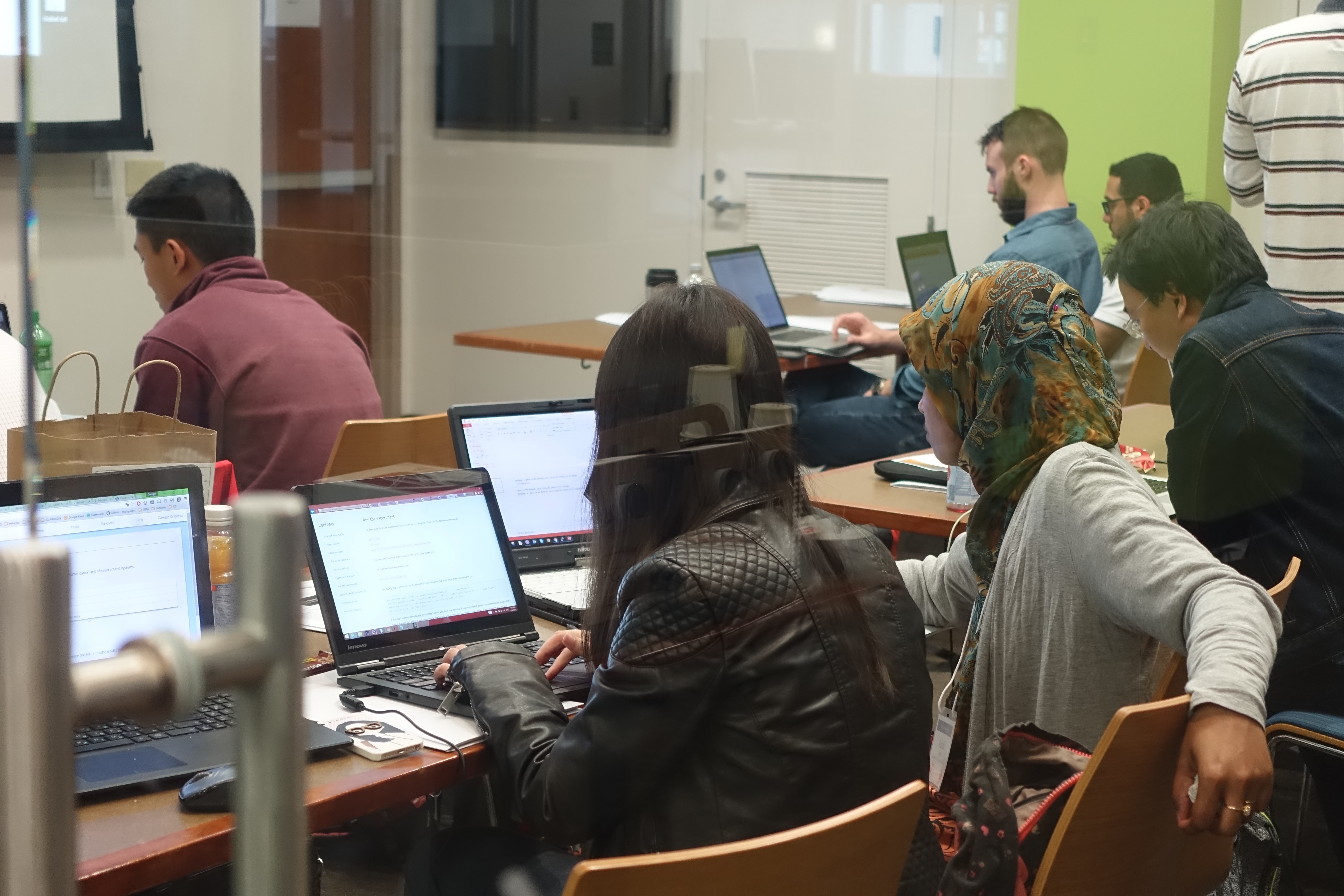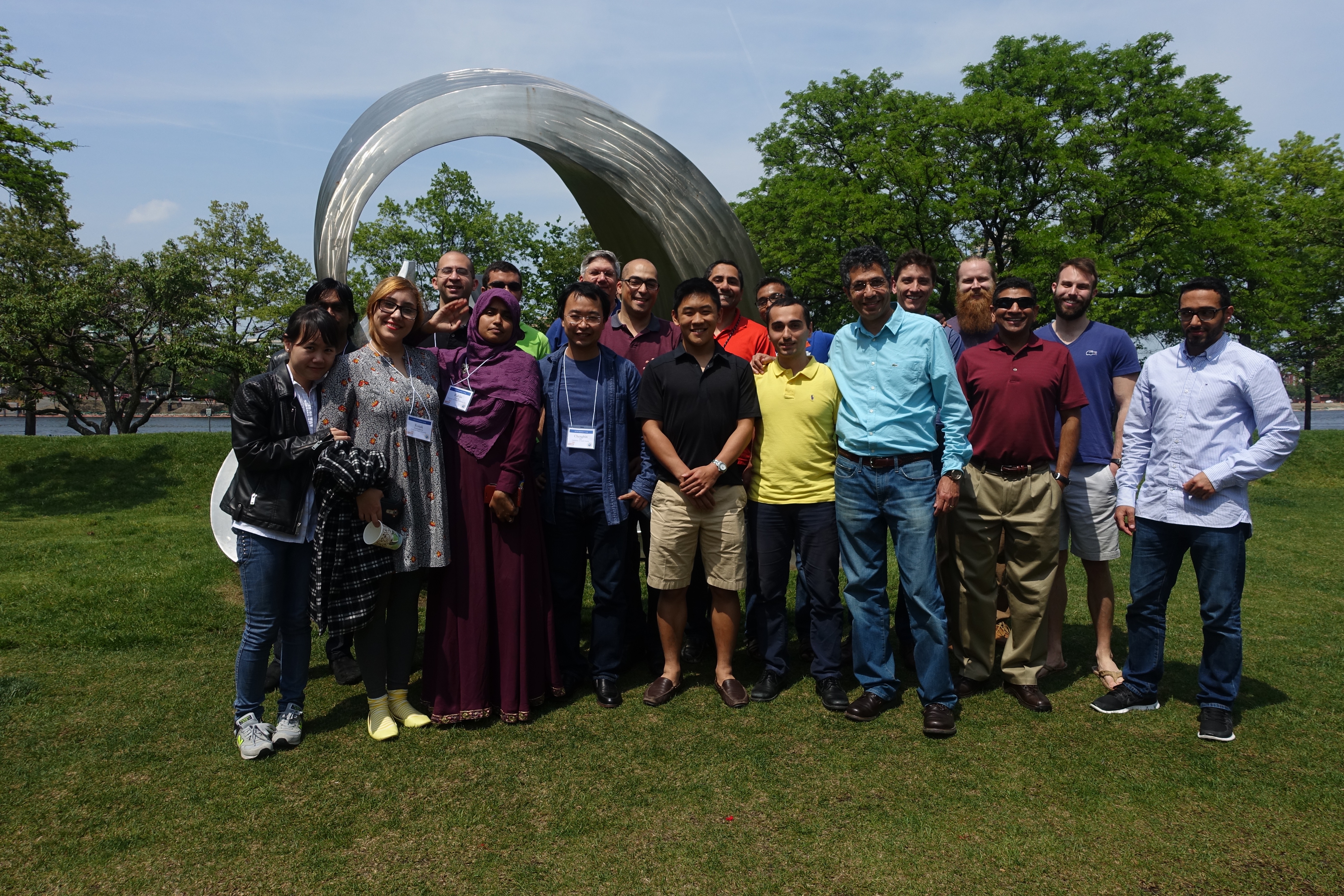Institute Hosts GENI Workshop for Researchers
How do we provide researchers with large-scale cyberinfrastructures that are both programmable and adaptable to a variety of research needs? When research interests require cyberinfrastructures that are so complex a single university cannot develop and maintain one on its own, projects such as the National Science Foundation’s GENI step in.
GENI (Global Environment for Network Innovations), provides a virtual laboratory for networking and distributed systems research and education. It is well suited for exploring networks at scale, thereby promoting innovations in network science, security, services and applications. It is supported by the National Science Foundation (NSF) and available without charge for research and classroom use. This model of a global-scale infrastructure, developed collaboratively by a community of researchers and practitioners, not only provides academic researchers with a space to try out their ideas in a realistic setting, but also allows other researchers to build and improve on such ideas.
 The Hariri Institute for Computing at Boston University hosted a GENI workshop on Monday May 23, 2016, which provided valuable information about GENI testbeds and tools. Participants also had the opportunity to partake in a summer camp for the remainder of the week where they gained in-depth experience with GENI and collaborated on projects and presentations. Presentation titles included: Protecting the OpenFlow Controller, Reducing iBGP Peerings using SDN, Investigating SDR on GENI, and Investigating Covert Timing Channel on GENI. The overall goal of both the workshop and summer camp was to spread ideas about how GENI can be used in research and education. As Hariri Institute Founding Director, Azer Bestavros, noted, “by virtue of existing projects related to cloud computing platforms (MOC) and smart-city services (SCOPE) at the Hariri Institute, BU is in a unique position to play a leading role – potentially in partnership with the GENI Project Office – in the development of such cyberinfrastructures.”
The Hariri Institute for Computing at Boston University hosted a GENI workshop on Monday May 23, 2016, which provided valuable information about GENI testbeds and tools. Participants also had the opportunity to partake in a summer camp for the remainder of the week where they gained in-depth experience with GENI and collaborated on projects and presentations. Presentation titles included: Protecting the OpenFlow Controller, Reducing iBGP Peerings using SDN, Investigating SDR on GENI, and Investigating Covert Timing Channel on GENI. The overall goal of both the workshop and summer camp was to spread ideas about how GENI can be used in research and education. As Hariri Institute Founding Director, Azer Bestavros, noted, “by virtue of existing projects related to cloud computing platforms (MOC) and smart-city services (SCOPE) at the Hariri Institute, BU is in a unique position to play a leading role – potentially in partnership with the GENI Project Office – in the development of such cyberinfrastructures.”
 Workshop and camp participants included both students and faculty, predominately from universities and companies in the Northeast. This included attendees from UMass Amherst, Brown, Northeastern, BU, Tufts, and Raytheon BBN, as well as schools outside the Northeast, such as the University of Utah, Georgia Tech, and Iowa State University. Most of the attendees came from backgrounds in computer science, engineering, or biomedical science. The principal organizer of the event, computer science professor Abraham Matta, noted,
Workshop and camp participants included both students and faculty, predominately from universities and companies in the Northeast. This included attendees from UMass Amherst, Brown, Northeastern, BU, Tufts, and Raytheon BBN, as well as schools outside the Northeast, such as the University of Utah, Georgia Tech, and Iowa State University. Most of the attendees came from backgrounds in computer science, engineering, or biomedical science. The principal organizer of the event, computer science professor Abraham Matta, noted,
“The GENI workshop and camp at BU helped us introduce GENI to new researchers and educators, particularly from the Boston area. They have gained sufficient GENI knowledge and skills to start using GENI right away for their research or teaching. As they continue to leverage GENI for research or pedagogical innovations, they will share their knowledge by publishing their experimental findings and also by giving lectures and leading hands-on tutorials in future workshops and camps.”

Workshop participants also had a chance to hear from Gloria Waters, Vice President and Associate Provost for Research at Boston University, who spoke on the university’s role as a staunch supporter of cyberinfrastructure to advance disciplinary and interdisciplinary research. In fact, since 2000, BU has been a Tier 2 site for the ATLAS project, the international Large Hadron Collector experiment at CERN. In collaboration with Harvard, BU provides one of five ATLAS “Tier 2” Computing centers in the United States, allowing for infrastructure to process and store data produced by the Hadron Collector experiment. Waters also spoke about BU’s leadership role in creating the Massachusetts Green High Performance Computing Center (MGHPCC), a first-in-the-world experiment in the shared construction and management of data center by leading research universities, local government, and industry leaders.